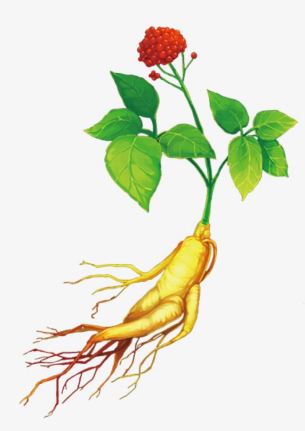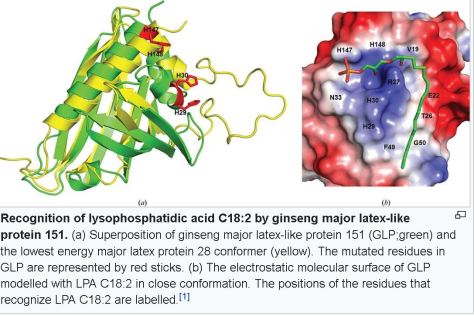
Men of a certain age love their ginseng. Ask a ginseng user, and he’ll tell you it gives him more energy. It’s like a cup of coffee without the screeching violins. A health nut will tell you that ginseng is good for the immune system, it increases your concentration, and it’s good for the heart. An old cowboy will tell you it makes his dick hard.
What makes ginseng tick?
Until recently, scientists considered Ginsenosides (ginseng saponins) to be the active ingredient in ginseng. During the past two decades, pharmacists have found another active ingredient called Gintonin, a glycolipoprotein – a protein with bonded carbohydrates and lipids, or fats.
Ginsenoside and Gintonin
Ginsenoside is Yin. It acts as a negative regulator. Gintonin is Yang. It acts as a positive regulator.
Yin
At the atomic level, Ginsenoside blocks positive-charged ions and it enhances negative charged ions. In the amazing factory of our bodies, this atomic action relaxes the excitability of nerves, it relaxes smooth muscles, and regulates heart muscles. In plain language, the Yin property of ginseng is that it soothes jangled nerves, which increases concentration. It lowers high blood pressure and regulates the heartbeat. And because it dilates the blood vessels, it makes that old cowboy one of the favorites at the dance hall.
Yang
At the atomic level, Gintonin increases the calcium ions that play a role in signal transmission along those miles of nerves. In the amazing factory of our bodies, positive calcium ions stimulate neurotransmitter release, increase muscle contraction, and stimulate fertility. In plain language, Gintonin makes the brain and nerves work better, it makes muscles stronger, and yes, that old cowboy is smiling now.
Sources:
https://www.nature.com/articles/aps2013100
https://en.wikipedia.org/wiki/Gintonin#cite_note-1
https://pngtree.com/freepng/hand-painted-ginseng-flowers_3000604.html

Do women use it too?
LikeLike